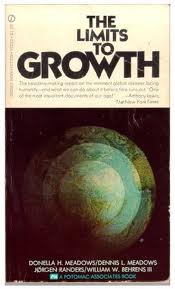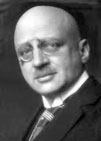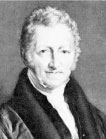The Economics of Non-Zero Sum Games
By Asher Crispe: December 15, 2010: Category Inspirations, Quilt of Translations
What are the economics of the world we live in?
Once upon a time, political economist Thomas Malthus (1766-1834) suggested that the global population was outpacing the yield of agricultural production. His theory, now known as the “Malthusian Trap”, has had continued influence until today with its expanded application to the wider sphere of economics as representing the overall limits to growth. Consequently, for many of us today, concerns about over-population, dwindling planetary resources and unfair distributions of wealth, are front and center in politics and society. The long shadow of the economics of scarcity casts doubt on our insatiable desire for more of the good life. Implied in this position is the suggestion that if one person, group or nation, possesses an excess or disproportionate amount of wealth, then others by definition suffer a lack. Furthermore, there are those who believe that the only way to remedy this is the voluntary or involuntary redistribution of wealth. After all, there is only so much to go around.
Jewish tradition has fundamentally rejected this notion and offered the world a true alternative way of thinking for the economics of today and tomorrow.
In giving shape to the functionality of the Messianic leadership and in characterizing the times that will transform the world and usher in utopian dreams of the ancient Hebrew prophets, the Sages of the Talmud highlight a number of names used to refer to the identity of such a figure and era. One such reference is to a verse in the book of Zechariah (6:12) which states simply “…behold, there is a man, Tzemach is his name, and he will flourish in his place….” We find that Tzemach means a ‘sprout’ in Hebrew. The name also shares a common root with the word tzomeach which refers to the vegetative kingdom as well as the general idea of growth. When the verse refers to him ‘flourishing in his place’ the translation eclipses an important nuance in the Hebrew original which alternatively reads as “and from beneath him.” Moreover, the phrase may be understood as “in place of him” i.e. in exchange or in substitution for him.
Various rabbinical commentators derive from this formulation the notion that it is his offspring or seed that accomplish the growth or flourishing by emulating the same qualities as the leader who embodies this “growth” concept. In other words, leadership that is able to inspire innovative growth to uplift us beyond the seemingly fixed limits of reality takes on Messianic proportions. Even more to the point, is the image of a ‘sprout’ which suggests some concealed pregnant potential in the ground of reality that appears somewhat spontaneously (perhaps we can calculate probabilities for the time of its appearance if given the right information) and reflects the popular scientific concept of emergence. Transitioning from a simple or lower order phenomena to a more complex, higher order one is a function of emergence. A basic example might be the idea of the whole being greater than the sum of its parts. Combined in the right way, new dimensions and possibilities arise or sprout out.
Pursuant to this line of thought, we must reacquaint ourselves with one of the ancient world hierarchies that populates the great chain of being by breaking down reality into four fundamental kingdoms: 1. the inanimate realm of rocks and minerals, 2. plants and vegetation, 3. animals 4. and the human with the capacity of speech. This taxonomy is employed throughout Jewish thought and has found a special place within Chassidic philosophy in particular.
 The Chassidic masters teach that each kingdom has its own abstract translation: the nature of a rock is to endure in a state of self-similarity. Always equal to itself, the rock has no growth potential; it represents an unchanging finite amount of substance. Additionally, the rock cannot act upon itself to bring about change. It cannot move unless some external force acts upon it. Even its decomposition requires environmental interaction. As an object, the rock embodies the purely static.
The Chassidic masters teach that each kingdom has its own abstract translation: the nature of a rock is to endure in a state of self-similarity. Always equal to itself, the rock has no growth potential; it represents an unchanging finite amount of substance. Additionally, the rock cannot act upon itself to bring about change. It cannot move unless some external force acts upon it. Even its decomposition requires environmental interaction. As an object, the rock embodies the purely static.
By contrast, the plant kingdom transitions from inorganic to organic substances and from static to dynamic qualities. The primary quality to emerge in ascending to the vegetative realm is that of growth—which is tantamount to saying that it is the emergence of emergence. The capacity for expansion begins with the plant world as does reproduction. We don’t see rocks begetting other rocks. Procreativity is an expression of potential infinitely in the sense of overcoming finite limits (in-finite) that we witness in the rocks and minerals. Plants also develop from out of the ground. They are nourished by minerals—but ultimately they are a higher order mode of being which subsumes the lower order, building upon it and becoming something fundamentally different.
Moving up the chain, the animal and the human register greater degrees of dynamic freedom, mobility and self determination. However, for our purpose we will focus on this first leap from levels one to two, static to dynamic.

 Despite all of this, one might continue to argue that the rocks and minerals, the land and soil, required for the plant kingdom remain limited and therefore, attach very real limits to what may grow upon them. Such a dilemma was facing the world’s rapidly swelling population at the start of the twentieth century. A recent publication entitled The Alchemy of Air, by Thomas Hager tells the story of a point in history when humanity seemed doomed to mass starvation with the impending Malthusian Catastrophe as the amount of fertilizer in the form of fixed nitrogen required for increased crop production to meet this demand was simply not available in a naturally occurring way.
Despite all of this, one might continue to argue that the rocks and minerals, the land and soil, required for the plant kingdom remain limited and therefore, attach very real limits to what may grow upon them. Such a dilemma was facing the world’s rapidly swelling population at the start of the twentieth century. A recent publication entitled The Alchemy of Air, by Thomas Hager tells the story of a point in history when humanity seemed doomed to mass starvation with the impending Malthusian Catastrophe as the amount of fertilizer in the form of fixed nitrogen required for increased crop production to meet this demand was simply not available in a naturally occurring way.
As Hager goes on to illustrate, it was a German Jewish chemist by the name of Fritz Haber, who along with Carl Bosch, would demonstrate in 1909 the ability to make synthetic fertilizer that so radically boosted the crop yield and growth capacity that today we are able to easily produce enough food to feed a global population that is approaching 7 billion. Yet there were unintended consequences to this new development—besides environmental pollution from the process and a host of obesity issues from cheap abundant food, another offshoot of their invention contributed to the fabrication of explosives used in World War I and II. Notwithstanding the down side—which can be addressed with its own set of solutions—the fact remains that billions of people would stave to death without this one Jewish innovation. It represents a sterling example of transcending the limits of growth.
 Many economists have started to look at the economic sphere in terms of play and games. Game theory now accounts for major contributions to our understanding of the inner working of the global commerce, consumer behavior, finance and more. Expounded upon in works like Robert Wright’s Nonzero: The Logic of Human Destiny, the distinction is made a between zero sum games—where the pie is only so big and where they are only so many slices you can cut and pass around—and non-zero sum games—where the pie itself can keep growing indefinitely along with the size and number of slices for distribution. Under the logic of the zero sum game, the only way for me to have more is to take from you and when all the slices are gone that’s it. There will be no more.
Many economists have started to look at the economic sphere in terms of play and games. Game theory now accounts for major contributions to our understanding of the inner working of the global commerce, consumer behavior, finance and more. Expounded upon in works like Robert Wright’s Nonzero: The Logic of Human Destiny, the distinction is made a between zero sum games—where the pie is only so big and where they are only so many slices you can cut and pass around—and non-zero sum games—where the pie itself can keep growing indefinitely along with the size and number of slices for distribution. Under the logic of the zero sum game, the only way for me to have more is to take from you and when all the slices are gone that’s it. There will be no more.
Invading country’s have often used this reasoning. If we want to gather more wealth or natural resources, the only way to accomplish this is by taking it from our neighbors. There must be winners and losers. By contrast, non-zero sum logic sees that we don’t have to compete or be in conflict but rather we can collaborate, resulting in win-win or lose-lose for me and you. Innovation, the power of ideas and the spark of creativity, can bring about the emergence of novel resources, to accomplish more with less. One change to the system, and suddenly the pie is bigger and everyone can eat more. This is the difference between the ‘rock’ mentality for finite economics and the sprouting of the ‘plant’ mentality of infinite economics. In a more theological idiom, we might suggest that it is a fundament distinction between the economics of exile—the time when the world is yet to be rectified—and the economics of redemption—when the world is woven through with interconnectivity.
To distill the Jewish perspective down to its most basic translation in terms of modern day economic theory, the redemptive or Messianic promise as it pertains to the issue of the limits of growth, simply stated, is the transition from a world of zero-sum games to a world or non-zero sum games, from the kingdom of rocks and minerals to the kingdom of plants and vegetation. This means, that if you look at the economic world around you and you see signs of more and more non-zero sum games being played, then we are moving closer and closer to the long awaited Jewish vision of the Messianic era. Our challenge is to accelerate this process whereby the whole world may be re-inscribed within a new economic reality based on abundance rather than scarcity.
The Economics of Non-Zero Sum Games,















;)
;)
;)
;)
;)
;)
;)
;)
;)
;)
